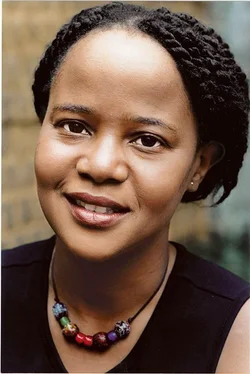Edwidge Danticat - Breath, Eyes, Memory
Здесь есть возможность читать онлайн «Edwidge Danticat - Breath, Eyes, Memory» весь текст электронной книги совершенно бесплатно (целиком полную версию без сокращений). В некоторых случаях можно слушать аудио, скачать через торрент в формате fb2 и присутствует краткое содержание. Жанр: Детектив, на английском языке. Описание произведения, (предисловие) а так же отзывы посетителей доступны на портале библиотеки ЛибКат.
- Название:Breath, Eyes, Memory
- Автор:
- Жанр:
- Год:неизвестен
- ISBN:нет данных
- Рейтинг книги:3 / 5. Голосов: 1
-
Избранное:Добавить в избранное
- Отзывы:
-
Ваша оценка:
- 60
- 1
- 2
- 3
- 4
- 5
Breath, Eyes, Memory: краткое содержание, описание и аннотация
Предлагаем к чтению аннотацию, описание, краткое содержание или предисловие (зависит от того, что написал сам автор книги «Breath, Eyes, Memory»). Если вы не нашли необходимую информацию о книге — напишите в комментариях, мы постараемся отыскать её.
Breath, Eyes, Memory — читать онлайн бесплатно полную книгу (весь текст) целиком
Ниже представлен текст книги, разбитый по страницам. Система сохранения места последней прочитанной страницы, позволяет с удобством читать онлайн бесплатно книгу «Breath, Eyes, Memory», без необходимости каждый раз заново искать на чём Вы остановились. Поставьте закладку, и сможете в любой момент перейти на страницу, на которой закончили чтение.
Интервал:
Закладка:
She did not sound hurt or angry, just like someone who was stating a fact. Like naming a color or calling a name. Something that already existed and could not be changed. It took me twelve years to piece together my mother's entire story. By then, it was already too late.
Two
Chapter 9
I was eighteen and going to start college in the fall. My mother continued working her two jobs, but she put in even longer hours. And we moved to a one-family house in a tree-lined neighborhood near where Marc lived.
In the new place, my mother had a patch of land in the back where she started growing hibiscus. Daffodils would need more care and she had grown tired of them.
We decorated our new living room in red, everything from the carpet to the plastic roses on the coffee table. I had my very own large bedroom with a new squeaky bed. My mother's room was even bigger, with a closet that you could have entertained some friends in. In some places in Haiti, her closet would have been a room on its own, and the clothes would not have bothered the fortunate child who would sleep in it.
Before the move, I had been going to a Haitian Adventist school that went from elementary right to high school. They had guaranteed my mother that they would get me into college and they had lived up to their pledge. Now my first classes at college were a few months away and my mother couldn't have been happier. Her sacrifices had paid off.
I never said this to my mother, but I hated the Maranatha Bilingual Institution. It was as if I had never left Haiti. All the lessons were in French, except for English composition and literature classes. Outside the school, we were "the Frenchies," cringing in our mock-Catholic-school uniforms as the students from the public school across the street called us "boat people" and "stinking Haitians."
When my mother was home, she made me read out loud from the English Composition textbooks. The first English words I read sounded like rocks falling in a stream. Then very slowly things began to take on some meaning. There were words that I heard often. Words that jump out of New York Creole conversations, like the last kernel in a cooling popcorn machine. Words, among others, like TV, building, feeling, which Marc and my mother used even when they were in the middle of a heated political discussion in Creole. Mwin gin yon feeling. I have a feeling Haiti will get back on its feet one day, but I'll be dead before it happens. My mother, always the pessimist.
There were other words that helped too, words that looked almost the same in French, but were pronounced differently in English: nationality, alien, race, enemy, date, present. These and other words gave me a context for the rest that I did not understand.
Eventually, I began to hear myself that I read better. I answered swiftly when my mother asked me a question in English. Not that I ever had a chance to show it off at school, but I became an English speaker.
"There is great responsibility that comes with knowledge," my mother would say. My great responsibility was to study hard. I spent six years doing nothing but that. School, home, and prayer.
Tante Atie once said that love is like rain. It comes in a drizzle sometimes. Then it starts pouring and if you're not careful it will drown you.
I was eighteen and I fell in love. His name was Joseph and he was old. He was old like God is old to me, ever present and full of wisdom.
He looked somewhat like Monsieur Augustin. He was the color of ground coffee, with a cropped beard and a voice like molasses that turned to music when he held a saxophone to his lips.
He broke the monotony of my shuffle between home and school when he moved into the empty house next door to ours.
My mother never trusted him. In the back of my mind echoed her constant warning, "You keep away from those American boys." The ones whose eyes followed me on the street. The ones who were supposedly drooling over me afterwards, even though they called me a nasty West Indian to my face. "You keep away from them especially. They are upset because they cannot have you."
Aside from Marc, we knew no other men. Men were as mysterious to me as white people, who in Haiti we had only known as missionaries. I tried to imagine my mother's reaction to Joseph. I could already hear her: "Not if he were the last unmarried man on earth."
When she came home during the day and saw him sitting on his porch steps next door, she would nod a quick hello and walk faster. She wrapped her arms tighter around me, as though to rescue me from his stare.
Somehow, early on, I felt that he might like me. The way his eyes trailed me up the block gave him away. My mother liked to say, "I admire priests because they like women for more than their faces and their buttocks." Joseph's look went beyond the face and the buttocks.
He looked like the kind of man who could buy a girl a meal without asking for her bra in return.
Whenever I went by his stoop, I felt like we were conspiring. How could I smile without my mother noticing and how could he respond to her brisk hello and mine too, without letting her see that wink that was for me alone?
At night, I fantasized that he was sitting somewhere pining away, dreaming about me, thinking of a way to enter my life. Then one day, like rain, he came to my front door.
I was stretched out on the couch with a chemistry book when I heard the knock. I looked through the security peephole to check. It was him.
"Can I use your phone?" he asked. "I've had mine disconnected because I'm going out of town soon."
I opened the door and led him to the phone. Our fingers touched as I handed it to him. He dialed quickly, smiling with his eyes on my face.
"Did we get it?" he asked into the phone.
His feet bounced off the ground when he heard the answer. "Yes!" he shouted. "Yes!"
He handed me back the phone with a wink.
"Have you ever really wanted something great and gotten it?" he asked.
My face must have been blank.
He asked me the question again, then suddenly slapped his forehead.
"I haven't even introduced myself."
"My name is Sophie," I said, jumping ahead.
"I am Joseph," he said. I knew.
"Was it good news you just got?"
"What gave me away?"
He looked at me as though he was waiting for me to say something equally witty. I wasn't as glib, as fast on my feet. I couldn't think of anything.
"It was good news," he answered. "I just found out that we got a gig in the East Village from now until our tour starts."
A gig?
"A job. I am a musician."
"I know," I said. "Sometimes I hear you playing at night."
"Does it bother you?"
"Non, it's very pretty."
"I detect an accent," he said.
Oh please, say a small one, I thought. After seven years in this country, I was tired of having people detect my accent. I wanted to sound completely American, especially for him.
"Where are you from?" he asked.
"Haiti."
"Ah," he said, "I have never been there. Do you speak Creole?"
"Oui, Oui," I ventured, for a laugh.
"We, we," he said, pointing to me and him. "We have something in common. Mwin aussi. I speak a form of Creole, too. I am from Louisiana. My parents considered themselves what we call Creoles. Is it a small world or what?"
I shook my head yes. It was a very small world.
"You live alone?" he asked.
My mother's constant suspicion prodded me and I quickly said, "No." Just in case he was thinking of coming over tonight to kill me. This was New York, after all. You could not trust anybody.
"I live with my mother."
"I have seen her," he said.
"She works."
"Nights?"
"Sometimes."
"Did you two just move here?"
"Yes, we did."
Читать дальшеИнтервал:
Закладка:
Похожие книги на «Breath, Eyes, Memory»
Представляем Вашему вниманию похожие книги на «Breath, Eyes, Memory» списком для выбора. Мы отобрали схожую по названию и смыслу литературу в надежде предоставить читателям больше вариантов отыскать новые, интересные, ещё непрочитанные произведения.
Обсуждение, отзывы о книге «Breath, Eyes, Memory» и просто собственные мнения читателей. Оставьте ваши комментарии, напишите, что Вы думаете о произведении, его смысле или главных героях. Укажите что конкретно понравилось, а что нет, и почему Вы так считаете.

![Корнелл Вулрич - Eyes That Watch You [= The Case of the Talking Eyes]](/books/32103/kornell-vulrich-eyes-that-watch-you-the-case-of-thumb.webp)










